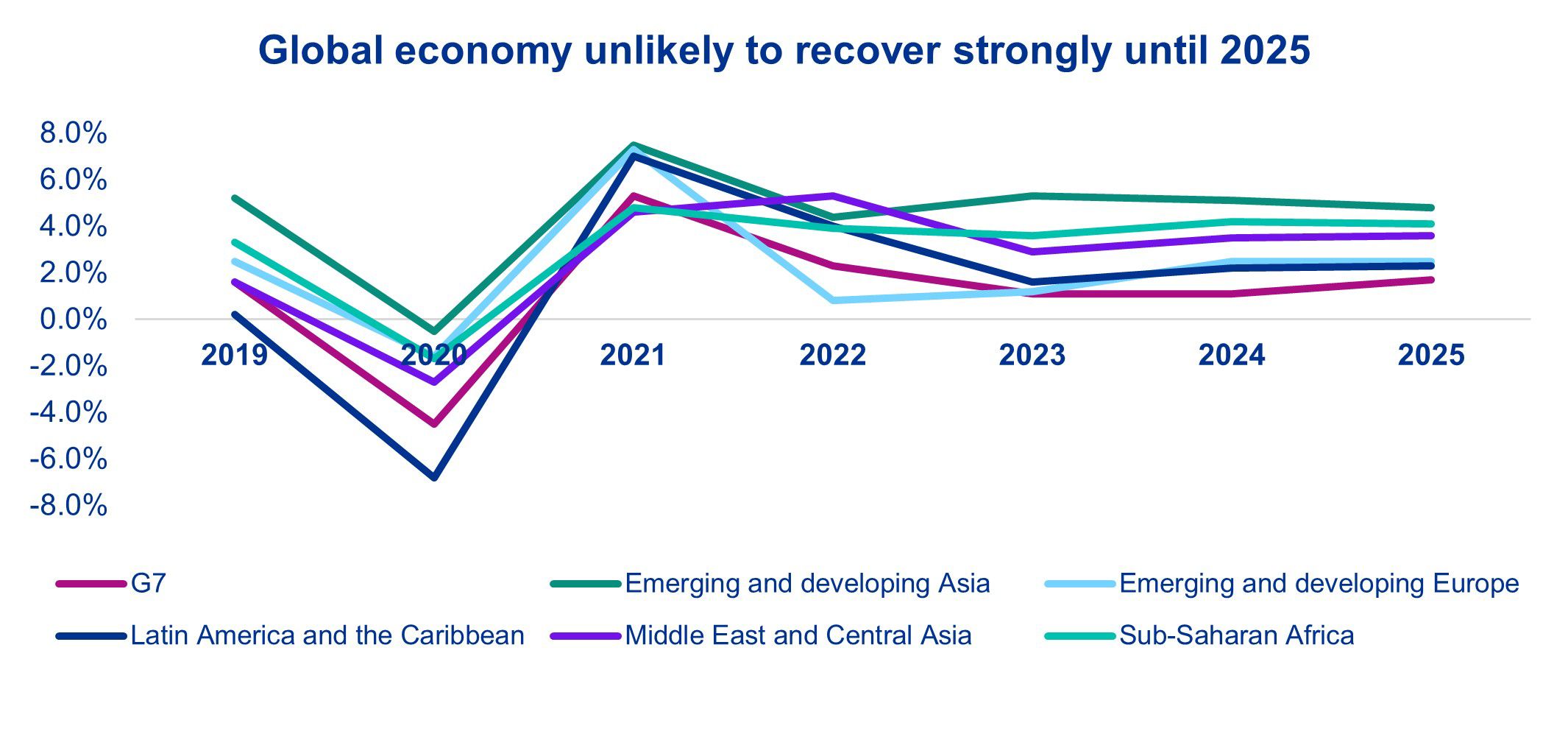Increased banking stress likely in emerging markets in 2H23, as economic slowdown intensifies
Key takeaways
- Globally, banking is among KPMG Financial Performance Index’s (FPI) top 10 underperforming sub-sectors in March 2023, largely driven by stress in North America.
- 84% of the total countries in the KPMG Financial Performance Index have marked a Q-o-Q drop in their banking sub-sector score in March 2023, compared to 65% in December 2022.
- Credit risks are likely to soar in several emerging markets in 2H23, with property loans emerging as major asset class of concern.
The collapse of a few lenders in the US in March 2023, and the subsequent fallout on both sides of the Atlantic, has increased stress in the global banking sector. The underperformance of the banking sector was evident in our KPMG Financial Performance Index (FPI), which indicates scores out of 100. According to the KPMG Financial Performance Index, banking is among the top 10 underperforming sub-sectors globally, posting a Q-o-Q drop of 2% to score 91.8 in March.
Evidently, the deterioration was triggered by growing turmoil in the US, where the score dropped from 94.9 to 91.5. The rapid rise in interest rates over the past year caused large, unrealized losses at banks that had invested heavily on long-dated bonds and mortgage-backed securities. This triggered the fear of deposit flight that drove a sell-off in the regional and midsized segment. An array of supportive measures, including guarantees on all deposits of failed firms and emergency liquidity measures, shored up some confidence and stability in the sector.

While the pressure is most visible in the US, investors are also looking to reduce exposure in other markets like Pakistan, Brazil and Turkey. This has been observed by the changes in KPMG FPI, where 84% of countries saw a Q-o-Q decline in their banking sub-sector score compared to March 2023. In particular, Brazil’s banking subsector FPI score fell from 90.11 to 88.09 in the quarter. However, our KPMG member firm in Brazil has observed notable increase in global capital flows in recent months and expects the banking subsector there to soon reverse this trend.
Emerging markets to experience delayed banking stress in 2H23, mainly due to credit risk
Monetary policy transmissions operate with lags and the long interval was evident in the US banking crisis earlier this year, which followed rapid interest rate hikes by the US Federal Reserve in 2022. We believe that the repercussions of the meltdown in other markets is delayed and that the stress in some of the vulnerable emerging markets is expected to shoot up in the coming quarters when global economic slowdown becomes more pronounced. Financial vulnerability will rise in countries with high indebtedness and large fiscal and current-account deficits, which will drive significant capital outflows when investor sentiment takes a hit.
A similar liquidity crisis in emerging markets appears less likely, as most mark-to-market losses seem to have already been absorbed, and less mature domestic money markets reduce the threat of deposit flight that caused issue in the US. What will be worth tracking in any public announcements from banks or their regulators are the loans-to-deposits and loans-to-value ratios, to ensure they stay within reasonable ranges.

Credit risks should soar in emerging countries, as rapid interest rate hikes and USD denominated lending impairs borrowers’ repayment capabilities. Property loans are already emerging as a key asset class of concern in some markets, such as Indonesia, amid falling demand and dropping rentals. These challenges will drive vulnerable players to seek government support or scout for bigger partners, with a once-in-a-career opportunity for some opportunistic takeovers which for emerging markets are likely to come from abroad. Whichever way, there is likely to be further consolidation in global banking sector, including a rise in “too-big-to-fail” banks.
Although markets expect that global monetary policy tightening is at its final lapse, with several central banks set to take a pause amid signs of moderating inflation, funding costs for banks, be it for retail or wholesale, is expected to remain high through the year. This coupled with weakening economic growth prospects will compel banks to adopt selective lending, halting the growth of their loan book. The FPI scores for 2Q23, which will be available in mid-July, will help us drill down to the emerging markets that are specifically facing elevated risks.

The stress in the US banking sector is set to be repeated in certain, more vulnerable emerging markets in the second half of 2023, especially in countries with high debt and large deficits, driving investor flight.

Tim Johnson,
Americas Lead Financial Services, Deal Advisory and Partner,
KPMG in the US
Contact Us
Connect with us
- Find office locations kpmg.findOfficeLocations
- kpmg.emailUs
- Social media @ KPMG kpmg.socialMedia

